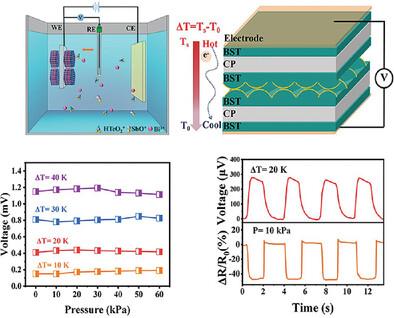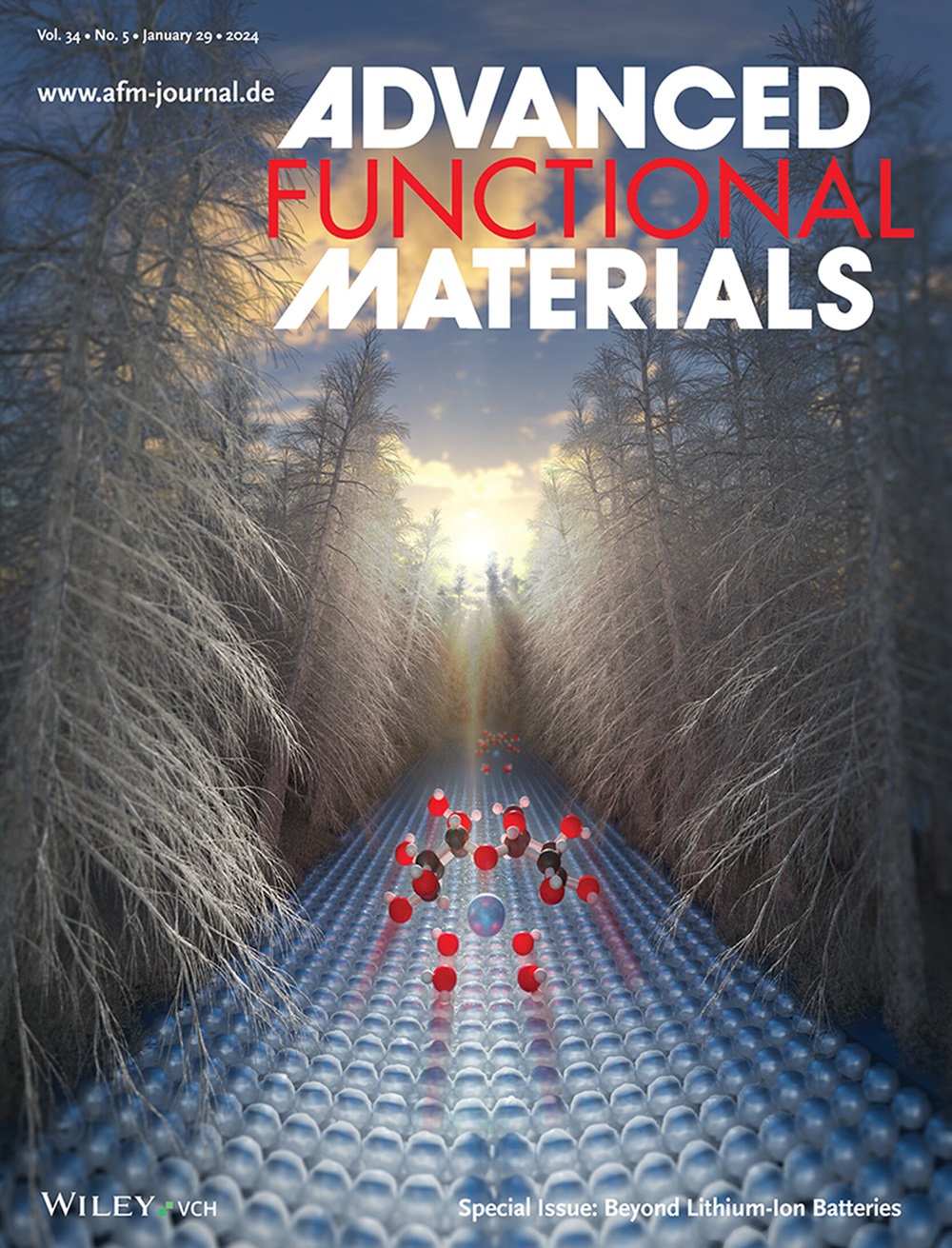Flexible Thermoelectric BiSbTe/Carbon Paper/BiSbTe Sandwiches for Bimode Temperature-Pressure Sensors
IF 18.5
1区 材料科学
Q1 CHEMISTRY, MULTIDISCIPLINARY
引用次数: 0
Abstract
Bimode temperature-pressure sensors hold significant promise in personal health monitoring, wearables and robotic signal detection. Traditional bimode sensors typically combine two independent sensors, leading to fabrication complexity. This study develops a bimode temperature-pressure sensor by using a facile electrodeposition method to create sandwiched BiSbTe/Carbon Paper/BiSbTe thin films and stacking them to a vertical structure. It demonstrates high sensitivity for temperature sensing, capable of detecting temperature difference as low as 1 K, and a rapid response time of 0.92 s due to a vertical structure. Utilizing its thermoelectric mechanism, the sensor achieves self-powered sensing for finger touch and respiration states. Furthermore, its island-like contact surface ensures high sensitivity with an extremely fast response time of 0.17 s, by rapidly changing contact resistance under pressure, allowing it to detect various human behaviors, including body movements and micro-expressions. Beyond its sensing capabilities, the film excels in flexibility, electromagnetic interference shielding, and stability, presenting significant potential for integration into self-powered electronic skin systems for health monitoring, wearables, artificial intelligence, and other electronic skin applications.

用于双模温度-压力传感器的柔性热电 BiSbTe/碳纸/BiSbTe 三明治
双模温度-压力传感器在个人健康监测、可穿戴设备和机器人信号检测方面大有可为。传统的双模传感器通常由两个独立的传感器组合而成,导致制造复杂。本研究采用简便的电沉积方法制造出夹层 BiSbTe/碳纸/BiSbTe 薄膜,并将其堆叠成垂直结构,从而开发出一种双模温度-压力传感器。它的温度传感灵敏度很高,能够检测到低至 1 K 的温差,而且由于采用了垂直结构,响应时间很快,仅为 0.92 秒。利用热电机制,该传感器实现了手指触摸和呼吸状态的自供电传感。此外,它的岛状接触面通过在压力作用下快速改变接触电阻,确保了 0.17 秒的极快响应时间和高灵敏度,使其能够检测包括肢体动作和微表情在内的各种人体行为。除传感功能外,该薄膜还在柔韧性、电磁干扰屏蔽和稳定性方面表现出色,具有集成到自供电电子皮肤系统中的巨大潜力,可用于健康监测、可穿戴设备、人工智能和其他电子皮肤应用。
本文章由计算机程序翻译,如有差异,请以英文原文为准。
求助全文
约1分钟内获得全文
求助全文
来源期刊

Advanced Functional Materials
工程技术-材料科学:综合
CiteScore
29.50
自引率
4.20%
发文量
2086
审稿时长
2.1 months
期刊介绍:
Firmly established as a top-tier materials science journal, Advanced Functional Materials reports breakthrough research in all aspects of materials science, including nanotechnology, chemistry, physics, and biology every week.
Advanced Functional Materials is known for its rapid and fair peer review, quality content, and high impact, making it the first choice of the international materials science community.
 求助内容:
求助内容: 应助结果提醒方式:
应助结果提醒方式:


